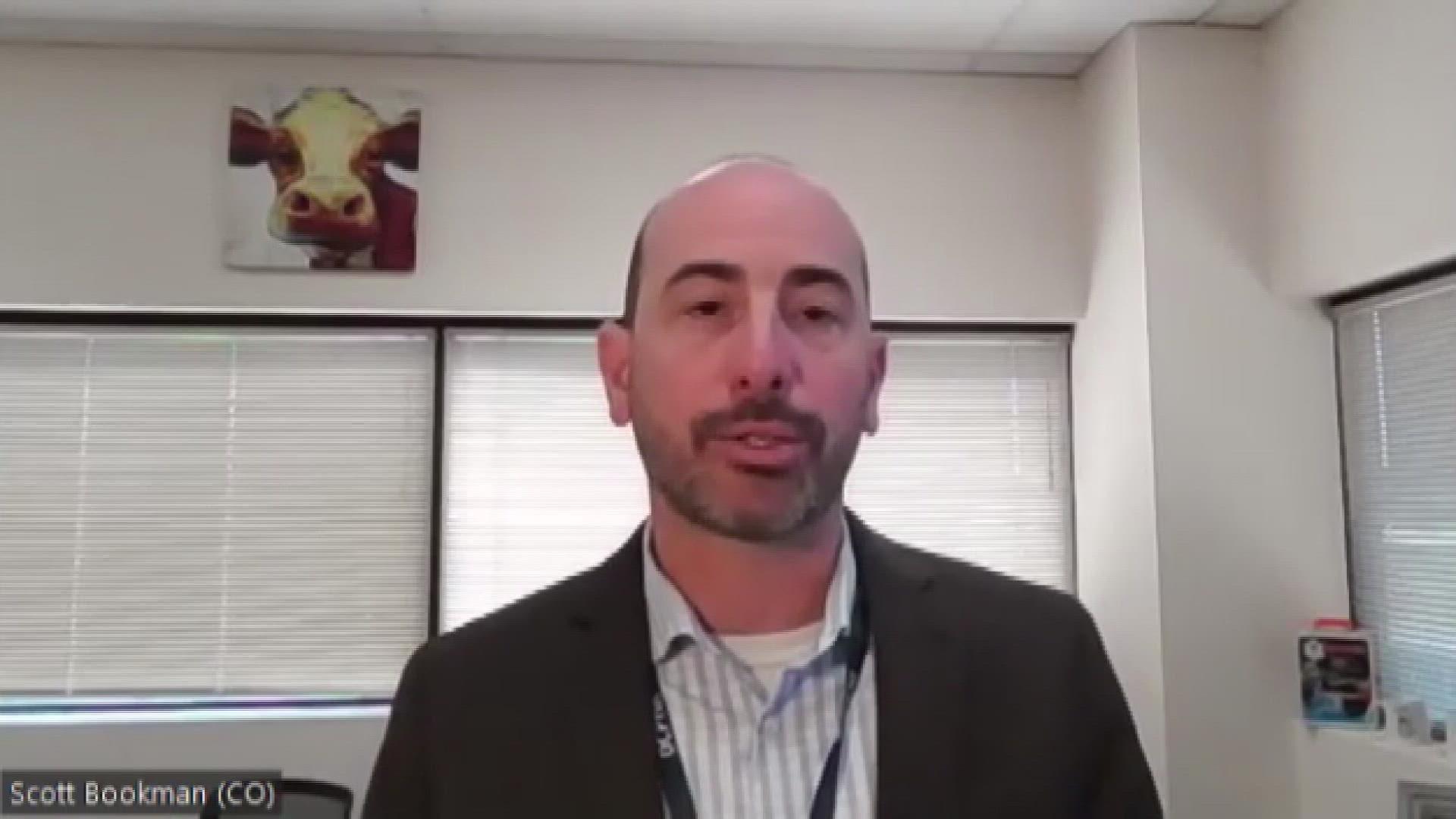COLORADO, USA — Once-scarce treatments for COVID-19 are now widely available in Colorado, and the state's COVID-19 Incident Commander, Scott Bookman, is encouraging people who test positive to ask about these medications.
(Editor’s note: This interview has been edited for context and clarity.)
9NEWS: Why do you need people to know right now about COVID-19 treatments?
Bookman: We've entered a new phase in our response to COVID where we now have a number of different medications that people can take after they test positive that have a significant impact on the severity and the duration of this illness.
Who should inquire about these treatments?
Bookman: Anybody who tests positive for COVID should immediately reach out to their healthcare provider, or one of the healthcare providers that we can connect them with, to get more information about whether they would qualify for one of these medications.
What treatments are available?
Bookman: There are really two different types of medications available right now. There are oral antivirals, pills that you take similar to what you may take if you were diagnosed with influenza. They do require a prescription from a doctor.
The other class is what we call monoclonal antibodies, and these are treatments that are given through an injection either through an IV or intramuscular. So this would be done probably in an infusion center or in a hospital, or maybe even a doctor's office.
When the first omicron wave came, we heard that not all of the monoclonal antibody treatments were as effective, but there are certain ones that are now?
Bookman: That is true. As this virus evolves and we see different variants, we have seen waning efficacy in specific types of these monoclonal antibodies, but our partners at the federal level in the pharmaceutical industry are continually making new versions of these monoclonal antibodies that are effective to the strains that we’re seeing out there today.
How many people in Colorado could use these treatments, but aren't?
Bookman: I do think that there are significantly more people who could be accessing these medications than are today, and so we really want to make sure that we change mindset. If you test positive for COVID, your next action should be to go home, keep yourself isolated, and think about how you’re going to access a medication that will decrease the severity and duration of your illness. So we really want everybody thinking that.
Even people who are healthy and low risk should be thinking about these medications?
Bookman: I think everybody should be thinking about this, and taking the step to at least contact their healthcare provider as more and more of these medications become available and widening the criteria of who is eligible to receive them. I think the default should be, "I test positive for COVID. I reach out to my doctor and have a conversation about whether I should receive this medication or not."
Is CDPHE getting the word out because they have plenty, and want to keep people out of the hospital?
Bookman: There is a significant supply at the state and at the federal level, and no indications that isn’t going to continue, and so we do want to make sure that everybody changes how they think about this now. This Paxlovid is one of those oral antivirals, and it reduces the chance of hospitalization by 90% if taken early in the course of COVID.
Is the timing of this message going out now because of what you're seeing with the virus?
Bookman: We are seeing an increase in cases, obviously, over the last several weeks, but honestly I think as we live with this virus ongoing, we are going to continue to see these ups and downs over time. So regardless of where we are, there are treatments available that can keep people out of the hospital.
Can you quantify how much of these medications are available?
Bookman: There are thousands of doses of these medications available at any given time, and we have the ability to work with our federal partners to get more into the state. And so we really want people to know that this is not a supply constraint resource at this point, and everybody should be thinking, "do I qualify for this medication? Let me call my doctor and find out."
Like so many things with COVID, in the early days there was a very small amount available, but as the federal government has been able to get more of this medication, there’s obviously been a lot more available, which is why we want to get the word out to people today.
SUGGESTED VIDEOS: Full Episodes of Next with Kyle Clark

